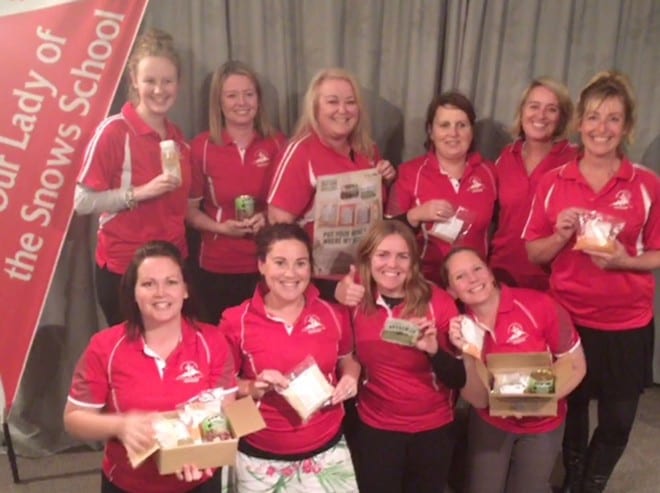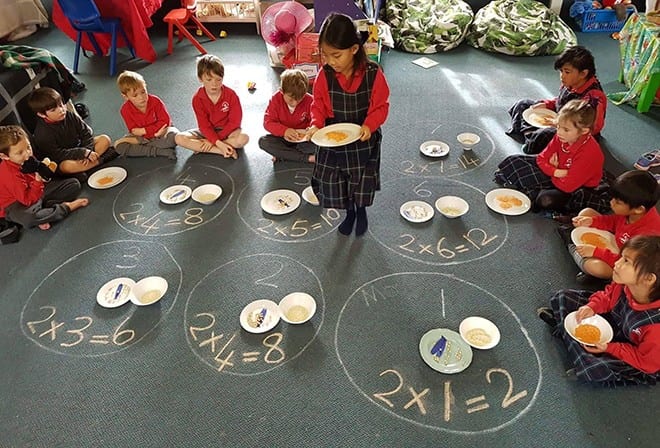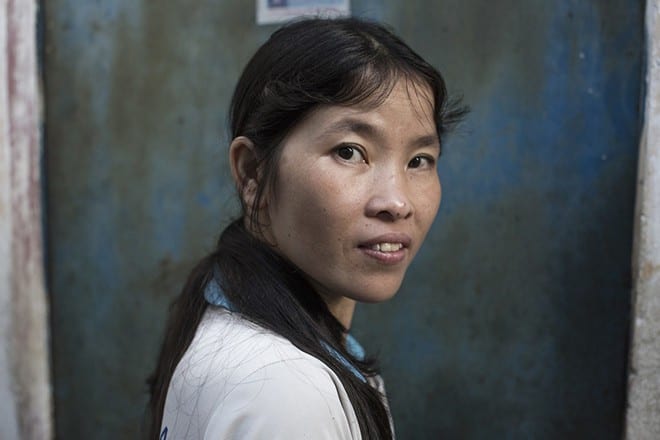Over a quarter of a billion more people could crash into extreme levels of poverty in 2022 because of Covid-19, rising global inequality and the shock of food price rises supercharged by the war in Ukraine, reveals a new Oxfam brief today.
“First Crisis, Then Catastrophe”, published ahead of the World Bank and IMF Spring Meetings in Washington DC, shows that 860 million people could be living in extreme poverty — on less than US$1.90 a day — by the end of this year. This is mirrored in global hunger: the number of undernourished people could reach 827 million in 2022.
The World Bank had projected COVID-19 and worsening inequality to add 198 million extreme poor during 2022, reversing two decades of progress. Based on research by the World Bank, Oxfam now estimates that rising global food prices alone will push 65 million more people into extreme poverty, for a total of 263 million more extreme poor this year —equivalent to the populations of the UK, France, Germany and Spain combined.
“Without immediate radical action, we could be witnessing the most profound collapse of humanity into extreme poverty and suffering in memory,” said Oxfam International Executive Director Gabriela Bucher. “This terrifying prospect is made more sickening by the fact that trillions of dollars have been captured by a tiny group of powerful men who have no interest in interrupting this trajectory.”
As many people struggle now to cope with sharp cost-of-living increases, having to choose between eating or heating or medical bills, the likelihood of mass starvation faces millions of people already locked in severe levels of hunger and poverty across East Africa, the Sahel, Yemen and Syria.
The brief notes that a wave of governments is nearing a debt default and being forced to slash public spending to pay creditors and import food and fuel. The world’s poorest countries are due to pay US$43 billion in debt repayments in 2022, which could otherwise cover the costs of their food imports. Global food prices hit an all-time high in February, surpassing the peak crisis of 2011. Oil and gas giants are reporting record-breaking profits, with similar trends expected to play out in the food and beverage sector.
People in poverty are being hit harder by these shocks. Rising food costs account for 17 percent of consumer spending in wealthy countries, but as much as 40 percent in Sub-Saharan Africa. Even within rich economies, inflation is super-charging inequality: in the US, the poorest 20 percent of families are spending 27 percent of their incomes on food, while the richest 20 percent spend only 7 percent.
For most workers around the world, real-term wages continue to stagnate or even fall. The effects of COVID-19 have widened existing gender inequalities too — after suffering greater pandemic-related job losses, women are struggling to get back to work. In 2021, there were 13 million fewer women in employment compared to 2019, while men’s employment has already recovered to 2019 levels.
The report also shows that entire countries are being forced deeper into poverty. COVID-19 has stretched all governments’ coffers but the economic challenges facing developing countries are greater, having been denied equitable access to vaccines and now being forced into austerity measures.
Despite COVID-19 costs piling up and billionaire wealth rising more since COVID-19 than in the previous 14 years combined, governments — with few exceptions — have failed to increase taxes on the richest. An annual wealth tax on millionaires starting at just 2 percent, and 5 percent on billionaires, could generate US$2.52 trillion a year —enough to lift 2.3 billion people out of poverty, make enough vaccines for the world, and deliver universal healthcare and social protection for everyone living in low- and lower middle-income countries.
“We reject any notion that governments do not have the money or means to lift all people out of poverty and hunger and ensure their health and welfare. We only see the absence of economic imagination and political will to actually do so,” Bucher said.
“Now more than ever, with such scale of human suffering and inequality laid bare and deepened by multiple global crises, that lack of will is inexcusable and we reject it. The G20, World Bank and IMF must immediately cancel debts and increase aid to poorer countries, and together act to protect ordinary people from an avoidable catastrophe. The world is watching”.
Oxfam is calling for urgent action to tackle the extreme inequality crisis threatening to undermine the progress made in tackling poverty during the last quarter of a century:
- Introduce one-off and permanent wealth taxes to fund a fair and sustainable recovery from COVID-19. Argentina adopted a one-off special levy dubbed the ‘millionaire’s tax’ that has brought in around US$2.4 billion to pay for pandemic recovery.
- End crisis profiteering by introducing excess profit taxes to capture the windfall profits of big corporations across all industries. Oxfam estimated that such a tax on just 32 super-profitable multinational companies could have generated US$104 billion in revenue in 2020.
- Cancel all debt payments for developing countries that need urgent help now. Cancelling debt would free up more than US$30 billion in vital funds in 2022 alone for 33 countries already in or at high risk of debt distress.
- Boost aid and pay for Ukrainian assistance and the costs of hosting refugees with new funding, rather than shift aid funds earmarked for other crises in poorer countries.
- Reallocate at least US$100 billion in Special Drawing Rights (SDR), without burdening countries with new debt or imposing austerity measures. The G20 promised to deliver US$100 billion in recycled SDRs but only US$36 billion has been committed to date. A new SDR issuance should also be considered and distributed based on needs rather than countries’ quota shares at the IMF.
- Act to protect people from rising food prices, and create a Global Fund for Social Protection to help the poorest countries provide essential income security for their populations, and maintain these services in times of severe crisis.
Notes to editors
Download Oxfam’s briefing “First Crisis, Then Catastrophe”.
The World Bank defines extreme poverty as living on less than US$1.90 per day.
The World Bank projected that COVID-19 will increase the number of people living in extreme poverty by 198 million people in 2022. This projection assumes that the Gini coefficient of income inequality will increase by two percent in all countries. The IMF, World Bank and OECD agree that COVID-19 is highly likely to drive up inequality.
New Oxfam estimates, building on World Bank projections and prior research conducted by the World Bank and Center for Global Development on food price spikes, show that 65 million more people could be pushed below the US$1.90 poverty line because of the harsh increases in food prices. See “First Crisis, Then Catastrophe” for more information.
Population of Germany (83 million), France (67 million), the UK (67 million) and Spain (47 million) from the World Bank. Total: 264 million.
Photographs and video from East Africa are available. As many as 28 million people across East Africa at risk of extreme hunger.
Data on debt servicing is from UNCTAD. FAO estimates food import bills for all low-income countries to be $46 billion (2021).
The COVID-19 crisis cost women around the world at least $800 billion in lost income in 2020, equivalent to more than the combined GDP of 98 countries.
Billionaires’ wealth has risen more since COVID-19 began than it has in the last 14 years combined.
Download “Taxing Extreme Wealth” for more information about an annual tax on the world’s millionaires and billionaires, what it would raise and what it could pay for.
Argentina has collected 223 billion pesos (around $2.4 billion) from its one-off pandemic wealth tax.
Oxfam estimated that a ‘Pandemic Profits Tax’ on 32 super-profitable global companies could have generated $104 billion in revenue in 2020 to address COVID-19. Download Oxfam’s report “Power, Profits and the Pandemic” for more information.
Some governments are contemplating raids on aid funds earmarked for other crises to pay for the new costs of Ukrainian support. Oxfam is aware that the EU has more than halved its humanitarian funding to Timor-Leste, for example, and that some donors have indicated that they will cut their aid to Burkina Faso by 70 percent, with other West African countries hearing similar news. At the same time, West Africa is facing its worst food crisis in ten years, with over 27 million people suffering from hunger.
SDRs are distributed based on countries’ quota shares at the IMF. As such, the US$650 billion SDR issuance delivered almost US$400 billion in added reserves to the world’s richest economies, US$230 billion to middle-income countries, and US$21 billion to low-income countries. Last October, G20 countries pledged to reallocate $100 billion in SDRs to “vulnerable countries whose economies have been hard hit by the COVID-19 crisis.”








